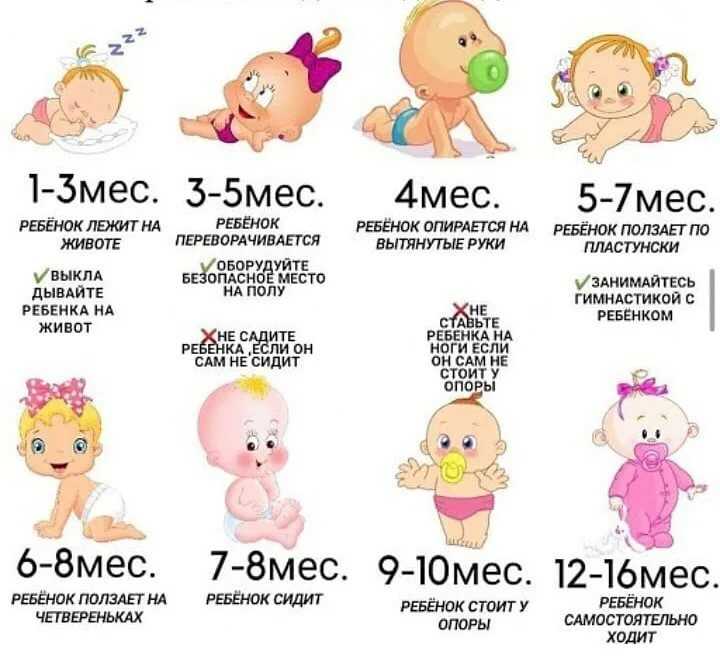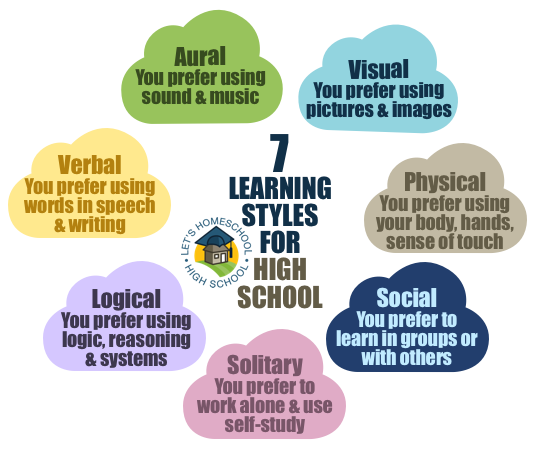How to deal with a know it all child
I am Right and You are Wrong! Is Your Child a Know-it-all?
Does your child always insist that they’re right and everyone else is wrong? Some kids have a bad habit of asserting their opinions by drowning out everyone else in the room—regardless of whether or not they know what they’re talking about. Understandably, this overbearing behavior can be annoying and frustrating for both parents and family members alike.
Before I give you ideas for dealing with this behavior, I want to make one thing clear: as kids grow, they need to develop their interests and ideas, and they need to learn how to express them. They also have to learn where they end emotionally and where their parents begin—what we call emotional boundaries.
At different developmental periods, kids go through a process called separation and individuation. Sometimes this process is barely noticeable, and sometimes it’s intense. As a child or teen matures, they continue that process by learning how to form their own opinions. Thus, some of the behavior you’re experiencing with your child is completely normal.
I also can’t stress enough the importance of listening to your child initially. I know they can be irritating sometimes, but remember, they might be stating an opinion about something you need to know about. It might be something the teacher is doing that may be inappropriate, a dangerous thing the bus driver is doing, or a risky behavior on the part of your child’s friends. Listen to your kids with an open mind because when something important does come along, you want to make sure they feel free to bring it to you.
Nevertheless, suppose your child asserts their opinion, crosses the line, and becomes obnoxious. In that case, there are things you can do to help curtail that behavior and teach them socially appropriate ways of behaving, both inside and outside of the home.
Don’t Be Frightened by Your Child’s Opinions
Do not be frightened by kids’ opinions; just respond honestly. I think judging your child by their behavior is more effective than judging them by their opinions, thoughts, or ideas. Often their ideas come from peers at school, rumors, cultural events, or something they’ve seen or heard in the media.
I think judging your child by their behavior is more effective than judging them by their opinions, thoughts, or ideas. Often their ideas come from peers at school, rumors, cultural events, or something they’ve seen or heard in the media.
When your child or teen is talking to you, they’re often trying to shape their own opinions. It’s better to hear your child out, state your opinion honestly, let them respond, and then respectfully disengage from the conversation. That way, nobody gets hurt, and you’ve avoided an argument.
So don’t be threatened by your child’s opinions and assertions, even if they’re wrong. The more you ignore these statements, the sooner they will go away. Indeed, if you want a child to be a real pain in the neck—if you want to strengthen some behavior or characteristic—then continue to argue with them because arguing makes your child feel more powerful.
Don’t Keep the Argument Going
If your child is trying to start an argument with you, don’t keep it going. Parents often feel like they have to get the last word in to be in control, which only furthers the child’s urge to argue with them.
Parents often feel like they have to get the last word in to be in control, which only furthers the child’s urge to argue with them.
If you disagree with your adolescent child, they often think it’s because you don’t understand what they’re saying, so they’ll keep trying to put it another way. They think that if they could explain it better, you’d understand and accept it, which is another reason why arguments with kids can keep going even after you’ve explained your point of view.
Arguing Gives Your Child a Feeling of Control
If your child tends to be argumentative and you stay in the argument with them, it makes them feel more powerful and in control. Don’t forget: kids only have the power you give them. Some of the power they need to have is important—it helps them develop their personal and social lives. In fact, it’s important that they gain increasing access to power as they grow older and individuate more.
But, when it comes to discussing house rules or consequences or privileges, I think that after they state their opinion, you say:
“I understand your opinion, but the rule is not changing. This is the way it is.”
This is the way it is.”
And then leave. If you stand there, they think it’s OK to keep talking. When you get out of the situation, it takes the power out of the room.
Disengage When Your Child Continues to Argue
One of the most powerful things you can do with kids who are know-it-alls is to not respond to them when they try to drag you into an argument. Be respectful, but disengage. And know that each time you respond, they feel compelled to answer back, and the discussion will just keep going.
When your child has come up with some erroneous statement in an attempt to prove their point, the best thing you can do is state your opinion honestly. When they state their counter-opinion, you can say:
“That’s interesting. I have to go downstairs now.”
Of course, you can change a household rule, but don’t make the change just because your child doesn’t like the rule. As the parent in the household, it’s up to you to set the rules, and your child doesn’t have to like them. Setting limits is your job, and testing limits is what kids naturally do.
Setting limits is your job, and testing limits is what kids naturally do.
Don’t Let One Child Ruin It for Everybody
If family members are having dinner or watching a movie together at home, don’t let one child dominate the conversation so that it blocks everyone else from expressing their opinions. It’s important to understand that while everyone’s opinion is valued, it’s usually valued once. After that, it becomes obnoxious.
If one of your children doesn’t like what you’re having for dinner or doesn’t care for the movie choice, give them their options and don’t let them sit there and continue to annoy everyone with their negativity. Always have a backup plan. This usually includes having them go to their room until they can let go of the topic or complaint they’re stuck on.
Your backup plan doesn’t have to be a punishment or consequence. It’s just a time out for your child in their room until they can get off the subject. Often, when kids are over-stimulated, anxious, or frustrated, it’s hard for them to switch thoughts on their own. A change of scenery and a few minutes away from the stimulation can be helpful.
A change of scenery and a few minutes away from the stimulation can be helpful.
Use Cues
Many parents of children who act in an overbearing way find it effective to devise a cuing system with their child to signal that they’re “doing it again.” You and your child should agree on a signal, like a cue in a movie or play. The gesture means:
“You need to stop it now. You’ve stated your opinion, and you need to let it go. If you go further, there are going to be consequences.”
Many parents find this an effective non-verbal tool for helping their children curtail inappropriate behavior without embarrassing them in front of others.
When Your Child Won’t Let Their Siblings Express Themselves
If your child won’t let his siblings express themselves, or will not listen to their opinions, what I would recommend is that you say the following:
“Jack, you aren’t listening to others. How can you keep arguing your position when you won’t even listen to your sister’s answer? Why don’t you give her a second and hear what she’s saying?”
That way, you provide an example to your other kids so they can learn to say, “You’re not listening. ”
”
If your kids don’t stop arguing, you can also say:
“I’m tired of this bickering. This conversation will end in sixty seconds, and if you continue, you’re going to your rooms.”
At first, the child who’s the know-it-all might get more obnoxious, but follow through with the consequences, and he will learn how to stop. Give them the responsibility to stop the argument in sixty seconds; if they don’t, hold them accountable. In this way, they learn to meet the responsibility of stopping the argument. In short, they learn to behave in a socially appropriate manner.
Conclusion
Remember, you don’t have to attend every argument you’re invited to. And although it’s important that kids feel they’re being heard and responded to, that doesn’t give them the right to be obnoxious and argue a point forever.
We can debate about many things, but as parents, it’s our responsibility to make the rules and determine what is and isn’t appropriate behavior. The truth is we all have opinions about our teachers, our bosses, and our leaders. Nevertheless, as we mature, we learn to separate our opinions from our ability to function in a society with rules. And this is an essential lesson for kids to learn.
The truth is we all have opinions about our teachers, our bosses, and our leaders. Nevertheless, as we mature, we learn to separate our opinions from our ability to function in a society with rules. And this is an essential lesson for kids to learn.
Related Content: How to Walk Away From a Fight With Your Child
Fighting with Your Teen? What to Do After the Blowout 7 Steps to Defuse the Tension
To the Parent of the Know-It-All Boy
Ever feel like he's constantly correcting you?
Here’s why he acts the way he does.
Each child moves through the world in his or her own way.
Some are loud and adventurous. Others are more reserved and analytical. In my book, The Child Whisperer, I call the four main ways that children move through life the 4 Types of children.
The More Serious Type 4 Child is likely to be labeled a “know-it-all.”
These children express a bold, serious quality in their thoughts, behaviors, and body language. They insist on being their own authority. They often see themselves as more mature. So parents or teachers can get frustrated with them trying to act like little adults.
They insist on being their own authority. They often see themselves as more mature. So parents or teachers can get frustrated with them trying to act like little adults.
His “know-it-all” nature can actually be a great gift, if you keep a few things in mind.
1. Your son may frequently feel misunderstood and alone.
Type 4 children tend to be more serious and reflective than other children their age. For that reason, they may not think that their peers understand or respect them.
When they do make friends, their friendships go deep. But because they tend to hold back and observe, making new friends can be a challenge.
TIP: Respect is one of the highest priorities for this child. Speak and act respectfully toward this child (even when he is frustrating to you) and he will respond in surprising ways. When he knows he has this foundation of respect from you, he will move through the world with much greater success.
2. He is driven to stay true to his own thoughts and experience.

The Type 4 child needs to be his own authority. At any age, from toddler on up, he will resist attempts to control him. (You can reason with him from an early age, thankfully.)
As he gets older, you might label his attempts at self-expression as “rebellion.” This can turn into a self-fulfilling prophecy in his teen years. Teenagers don’t rebel just for the sake of rebelling. If he is resistant to your influence, consider what is really going on.
TIP: Invite dialogue. Listen to his thoughts and opinions without immediately trying to change or punish him. He is more analytical in nature. As long as he knows you won’t shut him down, he’ll appreciate talking things out and thinking things through with you. Allow him to have a different point of view and he may come around to see yours.
3. He will resist an over-protective or sheltering parenting approach.
Your Type 4 Child has a natural gift for seeing the big picture. He notices far more about the world around him than he may let on. And he really does want to know it all!
And he really does want to know it all!
This is fantastic if you are a parent who gives him space to explore and try new things. But if you are uncomfortable with his exploration, this child may push the boundaries of your worldview. Trying to keep him from certain kinds of information will only increase its draw.
TIP: Your best way to protect this child is to give him tools to figure things out. Let him know it’s safe to express himself with you and to try new things.
4. He needs your help to find balance.
This child often plays in black and white, all or nothing. He could either keep his room super tidy or leave it a disaster. He could focus on his homework or fail all his classes. His behavior often tends toward extremes.
He is constantly processing the world analytically. He will likely make more balanced choices if he can see the cause and effect of his behavior.
TIP: Help your child recognize the real-world effects of his behavior. Point out others’ reactions to him. You don’t need to tell him to change his behavior. You can help him be aware of how he is perceived and he will change it himself.
Point out others’ reactions to him. You don’t need to tell him to change his behavior. You can help him be aware of how he is perceived and he will change it himself.
5. He needs your love without strings attached.
No parent places conditions on their love on purpose. But even if you don’t mean to, you might express conditional love more than you realize.
Conditional love is damaging to any child. But it’s especially painful for your Type 4 son because of his black-and-white thinking. If he sees your love as conditional part of the time, he may mistakenly conclude that you don’t love him at all.
TIP: Take a moment to asses where you may be putting conditions on your love. Your relationship with your Type 4 son will improve dramatically if he knows you will love him no matter what he thinks, says, or does.
Are you parenting a Type 4 son? If so, go back and review the Type 4 section in The Child Whisperer book from time to time.
A refresher will be supportive to you! If you don’t know which Type of child you’re parenting, pick up a copy of The Child Whisperer. You’ll learn how to read your child more clearly and create more cooperation and happiness in your home.
You’ll learn how to read your child more clearly and create more cooperation and happiness in your home.
Be the amazing parent your child needs.
By signing up, you are accepting the terms of our
Privacy Policy and agreeing to receive emails from us.
Related Articles
How to behave with children? Psychologist's advice
When disturbing, frightening events occur or a situation of uncertainty arises, parents are often worried about questions: how to behave with a child correctly, how to tell him about what is happening and whether to tell him at all what should alert the child's behavior, and what, on the contrary, is normal.
In child psychology, it is customary to distinguish several age periods. Consider the features of interaction with children of preschool (3-7 years old) and primary school (7-11 years old) ages. nine0004
A few recommendations:
The greatest influence on the child is not even the situation itself, but the reaction to it of close adults who surround him. For a preschooler, such adults will be parents and those adult family members with whom communication takes place every day; For the younger student, the teacher also plays a significant role:
For a preschooler, such adults will be parents and those adult family members with whom communication takes place every day; For the younger student, the teacher also plays a significant role:
- Children are very sensitive to the emotional state of close, significant adults. When an adult is upset, anxious, scared, the child also experiences these emotions. If the child does not know the reason, then helplessness is added to fear and anxiety. Therefore, when you see a child's need to talk, do not ignore it. nine0013
Example: You are upset and need some time to recover. The child feels this and insistently asks the question “What happened?”
Wrong answer: "Nothing happened, go play (draw, do your homework)"
The correct answer is: “I’m a little upset (alarmed, sad) right now, because ..., let’s draw a robot now (do your math homework), and then we’ll go for a walk (we’ll have dinner).” nine0004
- When talking to your child, use simple, child-friendly phrases and expressions.

- Ask about the child's point of view. This will help to understand what worries, scares or worries him, and you can provide the necessary psychological support.
- Try not to contradict the positions of the adults. Putting a child in a situation of choice, you place an unbearable burden on him.
- Children very quickly adapt to the situation, BUT! Only on condition that the behavior of adults gives them such an opportunity. nine0013
Pay attention to information hygiene:
- Pay attention to what you watch or talk about with your family, friends, acquaintances. Try not to see or hear what is not intended for him: emotional disputes with colorful examples, news releases with frightening details. Sometimes there is a feeling that the child does not pay attention to what is happening - this is an illusion! Based on the information obtained in this way, children often draw their own conclusions about what is happening, which are often the cause of children's fears.
 nine0013
nine0013 - At primary school age, the information field of the child expands, it includes school friends, classmates, many at this age master communication on the Internet. Show interest in this area, ask about his friends and hobbies. A trusting relationship will help you spot trouble or danger.
- Talk to children about topics that concern them, do not limit yourself to the phrases “everything will be fine”, “this is an adult topic, you won’t understand”, etc. If adults do not give an answer to a question of interest to the child, he will find the answer in another source, which may be unreliable and even dangerous. nine0013
Pay attention to the behavior and mode of life of the child:
- Adults experience difficult moments, realizing, thinking over and discussing what is happening. Children have other ways. It is easier for a preschooler to cope with what is happening by playing or drawing it. Therefore, stories that frighten a child can be found in a game or drawings.
 For younger students, it is important to study, master new knowledge, so often children of this age try to learn more about what excites, frightens or disturbs. Do not prohibit children from these activities and do not blame them. The best strategy is discussion and cooperation. And if the behavior of the child is alarming, consult a child psychologist for advice. nine0013
For younger students, it is important to study, master new knowledge, so often children of this age try to learn more about what excites, frightens or disturbs. Do not prohibit children from these activities and do not blame them. The best strategy is discussion and cooperation. And if the behavior of the child is alarming, consult a child psychologist for advice. nine0013 - Organize your child's life by keeping the usual routine of the day as much as possible. The usual course of life, everyday affairs, the presence of a plan for the next day, week, month allow you to overcome the feeling of helplessness and anxiety, allow you to feel confident.
Do not neglect sports, communication, hobbies yourself and do not deprive this child. If something from the previous possibilities turned out to be unavailable, try to find a replacement. These activities allow you to replenish the resources and energy spent on experiences. nine0004
Seek professional help if necessary.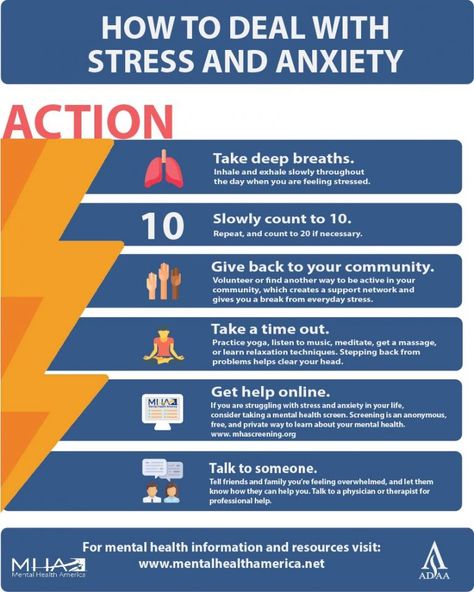 You may need to consult a child psychologist if:
You may need to consult a child psychologist if:
- The child's behavior has changed dramatically, these changes are persistent - they last several weeks or longer.
- The child has lost interest in things that were previously important to him: play, study, sports.
- Significantly changed the nature of communication with others: he became withdrawn, stopped communicating with friends, refuses to go to school or kindergarten. nine0013
- Symptoms such as stuttering, nightmares and difficulty falling asleep, intense fear appeared.
You feel the need for psychological help, even if there are no signs listed above.
We remind you that the Ministry of Education has organized a round-the-clock hotline for psychological assistance for children and parents based on the resource center of the Moscow State University of Psychology and Education. Help for children will be provided by phone: 8-495-624-60-01, adults - by the number 8-800-600-31-14.
How to discuss a “bad event” with a child
Education and upbringing is not only the development of mathematical skills and the explanation of the basics of etiquette, but also the formation of the ability to understand important, serious and difficult topics. The child learns to discuss unpleasant events by looking at his parents. Our blogger Polina Druzina tells how to make a serious conversation as comfortable as possible for parents and children.
No matter how adults - parents, teachers - try to protect children from danger, violence and news of tragedy, one day it's time to speak frankly. It can be a conversation about divorce, about a dog paradise where your pet went, about global tragedies in your hometown, and other topics that are difficult for any person. nine0004
This is not an easy conversation, but discussing the "bad things" that surround us is necessary to make the child feel safer. Often adults try to avoid difficult topics, but children guess when something sad or scary is happening. At this time, it is necessary to talk to the child in his language, otherwise the child may overestimate or misunderstand the silence of adults.
Be the first to start a conversation. When parents take up the discussion of difficult topics, they broadcast openness and support to their children. nine0004
How to carry on a conversation?
1. Plan the conversation
You can plan the conversation in your head, practice in front of a mirror, or work out the wording with another adult. Think about how to explain the topic to the child, depending on the age, without hiding the fundamentally important points.
2. Find the right time
When discussing a difficult topic, choose a time when the child is relaxed and you are free so that the children are the center of your attention. You should not talk about the death of a relative on the eve of a crucial moment for the child - he also needs time to digest the bad news, and you should be around as much as possible and help to cope with stress. nine0004
nine0004
3. Ask what the child knows about the topic
Sometimes our children are much better at complex things than we think. For example, if you want to discuss the subject of a school shooting, ask them what they know about it. Listen as much as you can and you might be surprised how knowledgeable today's children are. It will be much easier for you to speak when you know the child's knowledge of the topic.
4. Share your feelings with your child
It is normal to admit to your children that you can feel and experience. Children understand that you are a person and that discussing your emotions is not a shame. This is a very important aspect, because in our society it is customary to suppress strong emotions and be ashamed of them, which is why entire generations grow up with neurosis and fear of human manifestations - it's time to change this. Be a role model for your child and demonstrate that even if you are upset, you can pull yourself together and openly discuss any topic. nine0004
nine0004
5. Be honest
No need to invent fables about a traveling dad with an ongoing peacekeeping mission in the Amazon Valley if the father abandoned the family. Don't lie, but explain the facts at a level your child can understand. There is no need to give too many details and describe the whole horror of the other side of our existence - the child will not experience anything but fear. Carefully explain complex events within the framework of the child's worldview. For example, tell directly about the death of a loved one, without lies: "We will never see him again, but we can forever leave the memory of a loved one in our hearts." At the same time, do not load the child's mind with medical concepts. nine0004
6. Allow yourself not to know everything
Don't distance yourself from your child and don't be afraid to not know everything - sometimes the best answer to a question is "I don't know." Let the child see that this is not scary and sometimes things happen in life that cannot be explained.
7. Reassure the child and reassure him that he is loved
As a result of a difficult conversation, the level of trust between you and your child should increase. Convince the child that you are always ready to discuss with him any, even the most difficult topics, he can contact you with any question and not be ridiculed or rejected. Let him feel that you care about his questions, you are for him a guarantor of honesty and security, a true open friend. nine0004
8. Don't forget yourself
Discussing difficult news and tragedy with a child can be very difficult if you haven't experienced the first shock yourself. If you feel stuck and cannot cope with grief and psychological pressure, seek help - talk to someone from your relatives, friends, or consult a psychologist.
You don't need to use your child as a vest and dump the burden of adult problems on him, you need to be an example for him. Do not try to survive the tragedy through deliberate care for the child or vice versa, obliging him to listen to your pain.
